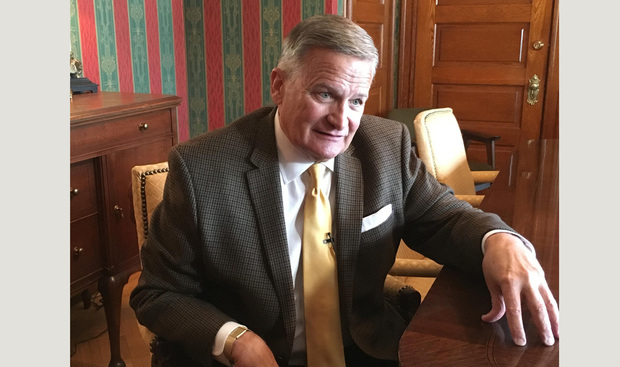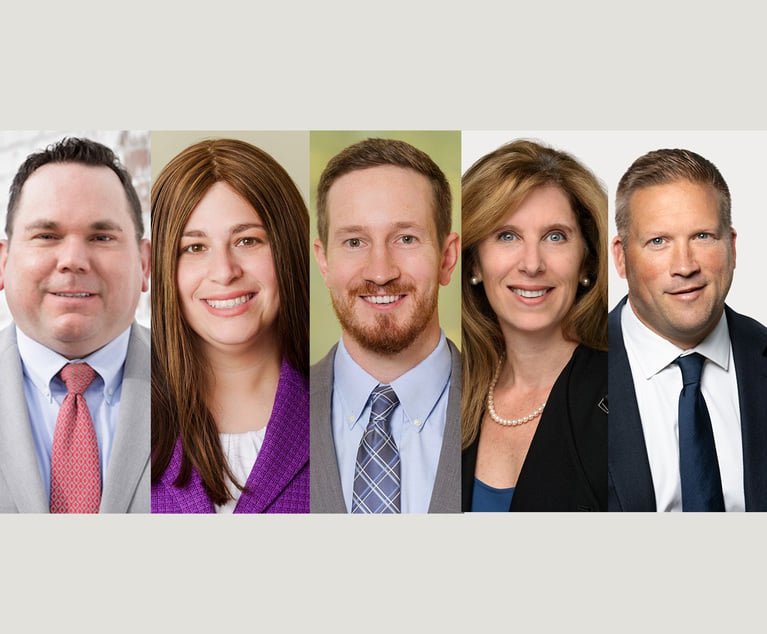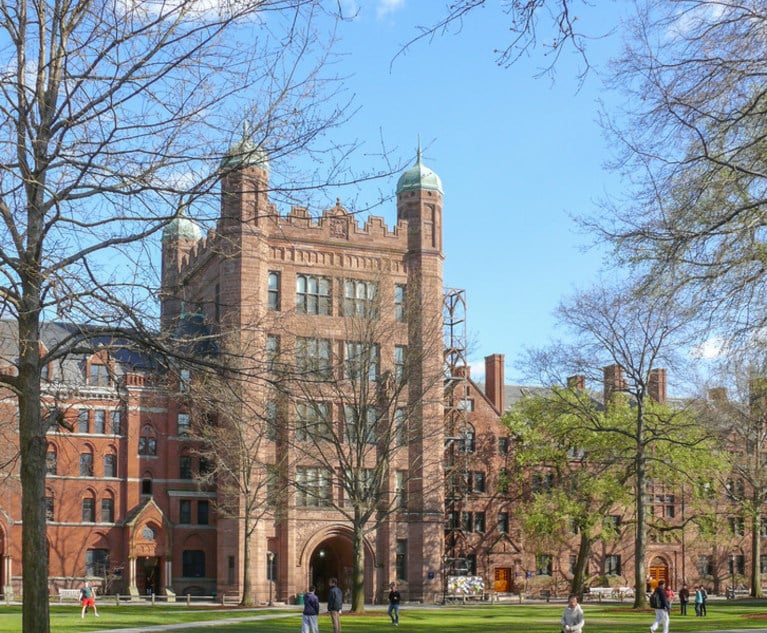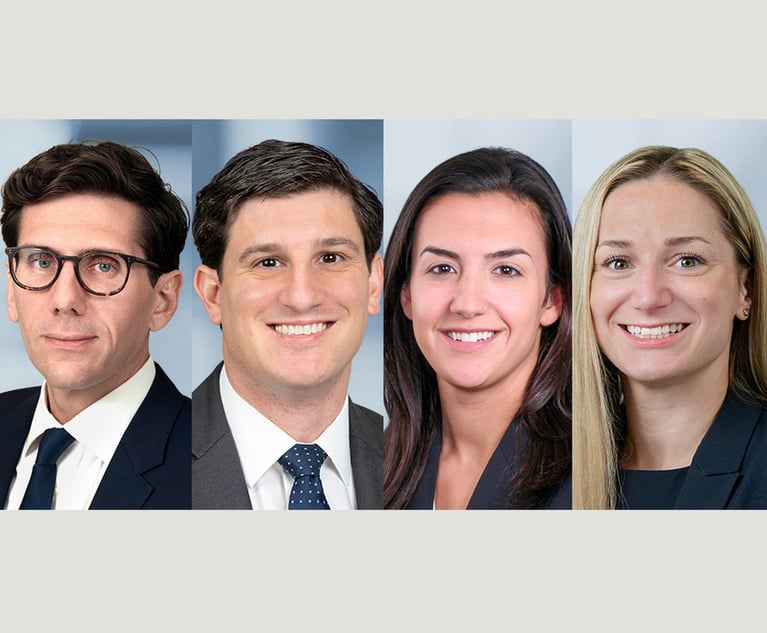PI Lawyer Robert Reardon Hasn't Advertised in 50 Years—And Doesn't Plan to Start Now
New London-based attorney Robert Reardon Jr. discussed tort reform, legal advertising and working at a small firm in a question-and-answer session with the Connecticut Law Tribune.
February 11, 2020 at 03:28 PM
6 minute read
 Attorney Robert Reardon Jr. Courtesy photo
Attorney Robert Reardon Jr. Courtesy photo
A New London-based personal injury attorney for more than 50 years, Robert Reardon Jr. said the biggest change in personal injury law was tort reform legislation enacted in Connecticut in the late 1980s.
Reardon, a 74-year-old Niantic resident, is the principal at The Reardon Law Firm.
In a question-and-answer session with the Connecticut Law Tribune, Reardon discussed tort reform, and how it changed—he believes for the worst—the legal landscape and how fellow personal injury attorneys ply their trade.
An especially impactful tort reform was a change that limited punitive damages to the actual cost of litigation, including reasonable attorney fees.
Reardon oversees a staff of five attorneys, including his daughter Kelly. He received the Connecticut Law Tribune's Professional Excellence Award in 2016. He received his law degree from Fordham University School of Law in 1970, and was a captain from 1971-1973 in the U.S. Marine Corps.
Here is the interview with Reardon, edited for length and clarity.
Connecticut Law Tribune: You have been an attorney for more than 50 years and focus exclusively on personal injury law. What has been the biggest impact on personal injury law the past five decades, and how have attorneys reacted to it?
Robert Reardon Jr.: The biggest impact clearly was tort reform legislation passed in Connecticut in 1986 and 1987, as a result of extensive national lobbying by the insurance industry.
Since 1986 and 1987, the insurance industry, which is the most powerful lobbying group in the United States, has had a tremendous influence on the personal injury and wrongful death litigation process in our state and nationally.
Plaintiffs personal injury attorneys have had to adjust. The tort reform, specifically, says there are a number of hurdles that exist in state law that a plaintiff and their lawyer must meet in order to receive fair compensation. Before tort reform, the jury was left to their own common sense and experience to arrive at fair damages for plaintiffs. But after tort reform, the legislative system has interjected itself into the process by taking the application of common sense away from the jury. I must say, though, I have complete confidence in the jury system.
CLT: Both you and your firm have taken on several pro bono initiatives, perhaps none as long and detailed as the 15 years you spent working to get tenants out of the 124-unit rat-infested Thames River Apartments in New London. Talk about the pushback you received from the town.
Reardon: The initial reaction of the city of New London was that they resisted us in telling them what to do.
The mentality always is with any government entity, when you are pro bono counsel or unable to afford counsel, is that "We know better, and please stop interfering with us carrying out our governmental responsibilities to our citizens." We learned that they, in fact, did not know better.
In fact, over the period of more than a decade of litigation, the municipality was unable to accomplish what they repeatedly assured us would happen: They failed to carry out their responsibilities to the tenants of the apartment complex.
Despite having ample opportunity to do so, they finally allowed the court and our firm to intervene so that the tenants could receive a safe place to live
CLT: Many lawyers are adverse to nonattorneys who provide alternative legal services, while others say it's the wave of the future. What is your view on those that provide alternative legal services, and do you think the practice takes money away from attorneys?
Reardon: There are many areas of law where alternative legal services are very valuable to the general public. Simply put: Most people can't afford to pay lawyers and, as a result, there are many areas of law where alternative legal services are essential, such as matrimonial law and criminal law.
Fortunately, the field of law our firm works in—personal injury law—has always been structured so that no one who has a legitimate claim for injury or death will ever be denied an attorney.
The system allows us to charge our fees as contingency based on the outcome of the case and, as a result, clients never have to pay a lawyer in a personal injury claim unless they recover.
I've always felt good lawyers will always be busy, The number of attorneys graduating from law school are many multiples from when I graduated 50 years ago. And therefore certainly some are concerned about their ability to make a living (because of alternative legal services).
CLT: Several personal injury law firms in this state spend a massive amount of money on advertising, but your firm doesn't. Tell us why and whether you think advertising demeans the profession.
Reardon: We've never felt the need to advertise. We've always relied upon references from lawyers and clients and members of the community. They know our reputation as a personal injury and wrongful death firm.
We believe that if you have an excellent reputation in your community as a firm, regardless of whether you are a personal injury firm or not, that your client will come to you by reputation and referrals from others.
I think advertising does demean the profession when it's not done properly and with discretion. I think most people nowadays do not put a lot of weight in how many advertisements a particular law firm can purchase on TV. Rather, they seek out advice from their friends and relatives and neighbors about who is a good lawyer for them to go to.
CLT: You've spent most of your professional career in New London. Did you ever desire to work for one of the state's larger firms and tell us about the advantages of working for a smaller firm.
Reardon: I went to college in New York and most of my classmates went off to the large Manhattan law firms. I've continued through 50 years to keep in touch with a good number of them. I know what their life has been like and what mine has been like. I've never had a regret that I made the right decision in deciding to come home to New London after leaving the Marine Corps.
As a young lawyer working for a smaller firm you have the opportunity to have hands-on experience practicing law, as I did, when I started with a small firm in New London. As you progress through your career, you also have an opportunity for quicker advancement to being partner and success than at a larger firm.
Related stories:
No Jerks Here: This Group of Lawyers Is Setting a High Bar for Civility in Profession
Some Connecticut Lawyers Struggling to Make a Living. What's the Bar Doing?
This content has been archived. It is available through our partners, LexisNexis® and Bloomberg Law.
To view this content, please continue to their sites.
Not a Lexis Subscriber?
Subscribe Now
Not a Bloomberg Law Subscriber?
Subscribe Now
NOT FOR REPRINT
© 2025 ALM Global, LLC, All Rights Reserved. Request academic re-use from www.copyright.com. All other uses, submit a request to [email protected]. For more information visit Asset & Logo Licensing.
You Might Like
View All


Discovery Seeks to Link Yale University to Doctor in Fertility Scandal
4 minute readTrending Stories
- 1Class Action Settlements Totaled $40B+ Three Years in a Row: 'We’re in a New Era'
- 2Automaker Pleads Guilty and Agrees to $1.6 Billion in Payouts
- 3MLB's Texas Rangers Search For a New GC and a Broadcasting Deal
- 4Does the Treasury Hack Underscore a Big Problem for the Private Sector?
- 5Gen AI Legal Tech Startup Eve Raises $47 Million Series A Investment
Who Got The Work
J. Brugh Lower of Gibbons has entered an appearance for industrial equipment supplier Devco Corporation in a pending trademark infringement lawsuit. The suit, accusing the defendant of selling knock-off Graco products, was filed Dec. 18 in New Jersey District Court by Rivkin Radler on behalf of Graco Inc. and Graco Minnesota. The case, assigned to U.S. District Judge Zahid N. Quraishi, is 3:24-cv-11294, Graco Inc. et al v. Devco Corporation.
Who Got The Work
Rebecca Maller-Stein and Kent A. Yalowitz of Arnold & Porter Kaye Scholer have entered their appearances for Hanaco Venture Capital and its executives, Lior Prosor and David Frankel, in a pending securities lawsuit. The action, filed on Dec. 24 in New York Southern District Court by Zell, Aron & Co. on behalf of Goldeneye Advisors, accuses the defendants of negligently and fraudulently managing the plaintiff's $1 million investment. The case, assigned to U.S. District Judge Vernon S. Broderick, is 1:24-cv-09918, Goldeneye Advisors, LLC v. Hanaco Venture Capital, Ltd. et al.
Who Got The Work
Attorneys from A&O Shearman has stepped in as defense counsel for Toronto-Dominion Bank and other defendants in a pending securities class action. The suit, filed Dec. 11 in New York Southern District Court by Bleichmar Fonti & Auld, accuses the defendants of concealing the bank's 'pervasive' deficiencies in regards to its compliance with the Bank Secrecy Act and the quality of its anti-money laundering controls. The case, assigned to U.S. District Judge Arun Subramanian, is 1:24-cv-09445, Gonzalez v. The Toronto-Dominion Bank et al.
Who Got The Work
Crown Castle International, a Pennsylvania company providing shared communications infrastructure, has turned to Luke D. Wolf of Gordon Rees Scully Mansukhani to fend off a pending breach-of-contract lawsuit. The court action, filed Nov. 25 in Michigan Eastern District Court by Hooper Hathaway PC on behalf of The Town Residences LLC, accuses Crown Castle of failing to transfer approximately $30,000 in utility payments from T-Mobile in breach of a roof-top lease and assignment agreement. The case, assigned to U.S. District Judge Susan K. Declercq, is 2:24-cv-13131, The Town Residences LLC v. T-Mobile US, Inc. et al.
Who Got The Work
Wilfred P. Coronato and Daniel M. Schwartz of McCarter & English have stepped in as defense counsel to Electrolux Home Products Inc. in a pending product liability lawsuit. The court action, filed Nov. 26 in New York Eastern District Court by Poulos Lopiccolo PC and Nagel Rice LLP on behalf of David Stern, alleges that the defendant's refrigerators’ drawers and shelving repeatedly break and fall apart within months after purchase. The case, assigned to U.S. District Judge Joan M. Azrack, is 2:24-cv-08204, Stern v. Electrolux Home Products, Inc.
Featured Firms
Law Offices of Gary Martin Hays & Associates, P.C.
(470) 294-1674
Law Offices of Mark E. Salomone
(857) 444-6468
Smith & Hassler
(713) 739-1250











